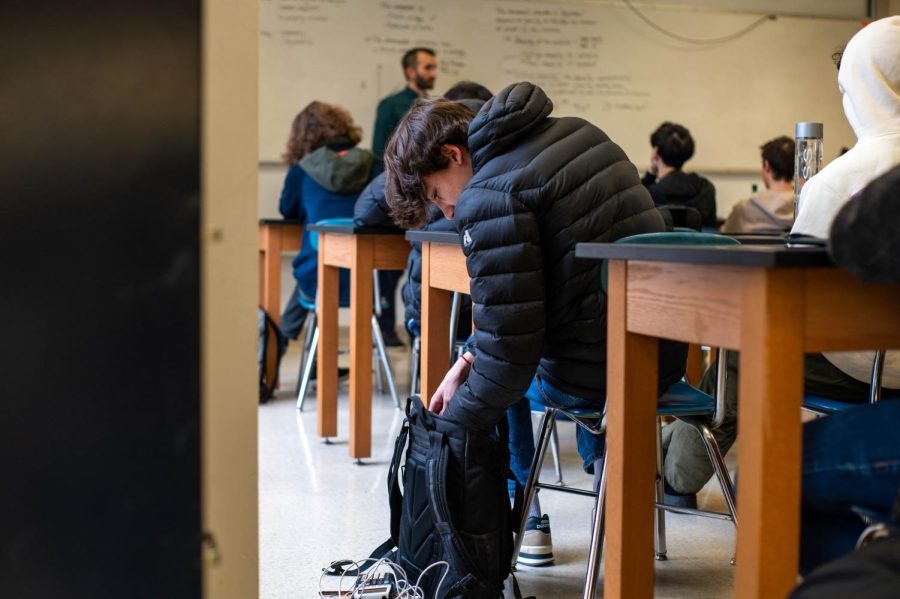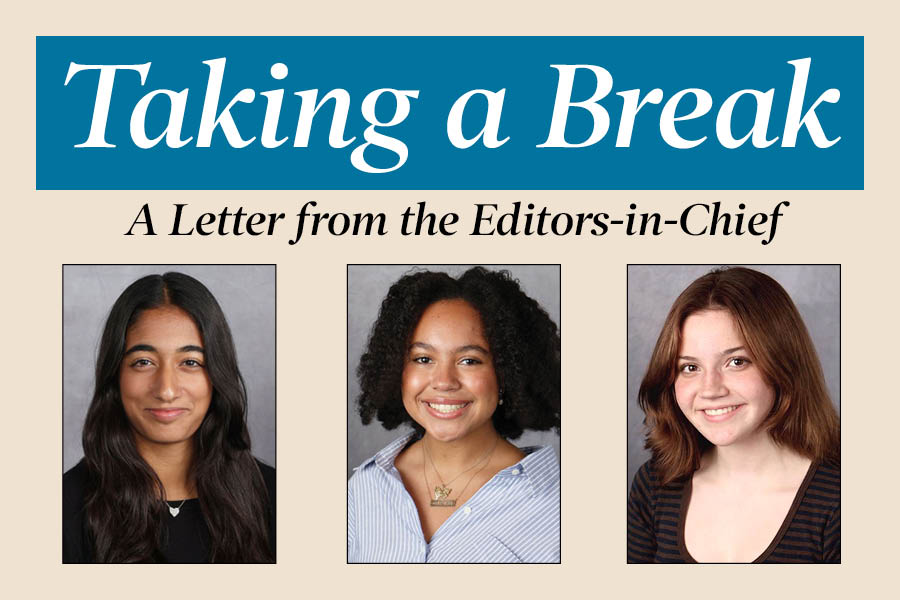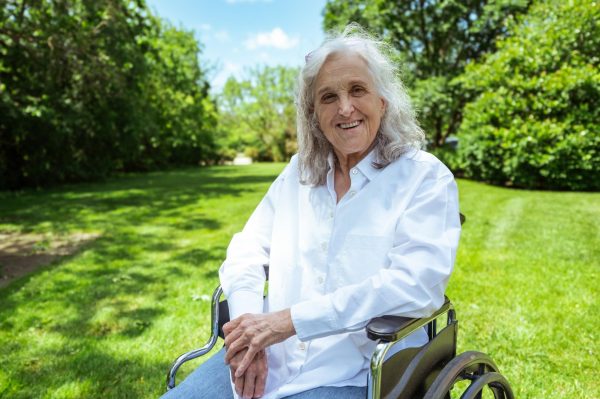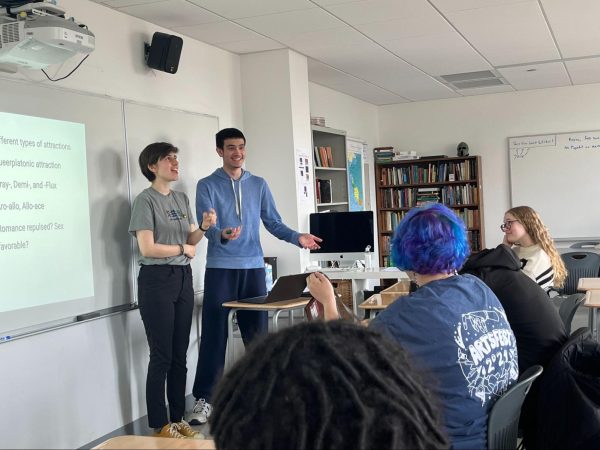Packing problem: Despite teacher annoyance, students pack up early
TIME CRUNCH: With only five minutes to get to their next class, it is common for students to pack up their supplies while a teacher is still talking.
January 5, 2023
The sounds of slamming lockers and screeching chairs echo throughout the high school. A student in the back of the class glances at the clock. He zips up his pencil case, and unrest fills the room.
The chain reaction of shutting laptops, closing notebooks and zipping backpacks travels through the classroom. But class is not over yet; the teacher is still speaking. So, moments later, when class is over, students are ready to rush into the crowded hallways.
Despite the annoyance some teachers feel, U-High students have not been prohibited from packing up their belongings before the end of class, causing it to become a normalized occurrence.
The most common reason students pack up early is to ensure that they are on time to their next class. Students find that they can maximize efficiency through doing this, rather than waiting until the end of class.
“I found that if I actually pack up when class ends, I’m usually late to my next class,” sophomore Karis Lee said.
Colin Rennert-May, English teacher, understands how the short, five-minute passing periods affect this behavior and usually does not prevent his students from packing up early.
However, an instance where Mr. Rennert-May would feel that this behavior is disrespectful is when a student is speaking while their classmates are packing up.
“Somebody’s having their best idea, maybe the class has taken a long time to warm up, and this is the moment when people are pulling things together,” Mr. Rennert-May said. “And it’s killed in an instant by that.”
In most other scenarios, students have noticed how, when their teacher is speaking near the end of class, they tend to speak faster in response to the turmoil in the classroom rather than addressing the problem.
“Once it starts, and you can hear everyone unzipping their backpacks and putting their folders inside and all that noise,” Karis said. “The teacher starts talking really really fast to try to get in everything they want to say before we’re done packing up.”
One of the most recognized aspects of this behavior is how quickly it takes place. Packing up early becomes contagious when students are anxious to get to their next class.
“It’s contagious, right,” Mr. Rennert-May said. “If one student starts packing up their stuff, then every other student kind of tenses up a little bit in the class.”
The decline of zipping sounds signal the end of the chain reaction, leaving U-High students prepared to rush out of their classroom door the moment class is over. Students heave their heavy backpacks onto their backs and travel through the overcrowded hallways to their next class, hoping they won’t be late.




















